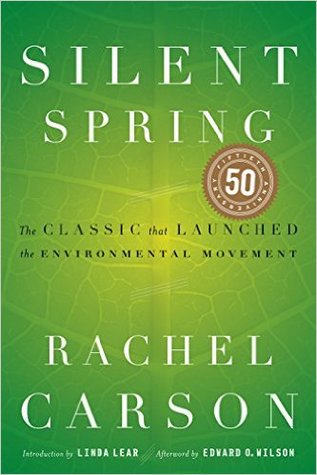More on this book
Community
Kindle Notes & Highlights
Only within the moment of time represented by the present century has one species—man—acquired significant power to alter the nature of his world.
Can anyone believe it is possible to lay down such a barrage of poisons on the surface of the earth without making it unfit for all life? They should not be called “insecticides,” but “biocides.”
We allow the chemical death rain to fall as though there were no alternative, whereas in fact there are many,
If the Bill of Rights contains no guarantee that a citizen shall be secure against lethal poisons distributed either by private individuals or by public officials, it is surely only because our forefathers, despite their considerable wisdom and foresight, could conceive of no such problem.
We are rightly appalled by the genetic effects of radiation; how then, can we be indifferent to the same effect in chemicals that we disseminate widely in our environment?
pollution of the groundwater is pollution of water everywhere.
The question is whether any civilization can wage relentless war on life without destroying itself, and without losing the right to be called civilized.
The illusion that salvation of the elms lies at the end of a spray nozzle is a dangerous will-o’-the-wisp that is leading one community after another into a morass of heavy expenditures, without producing lasting results.
“an amazing rain of death” upon the surface of the earth.
The gypsy moth programs were marked by many acts of irresponsibility. Because the spray planes were paid by the gallon rather than by the acre there was no effort to be conservative, and many properties were sprayed not once but several times.
Ant mounds on lawns or playgrounds may create a situation where children are likely to be stung, but this is hardly an excuse for drenching millions of acres with poisons.
“We all live under the haunting fear that something may corrupt the environment to the point where man joins the dinosaurs as an obsolete form of life,”
A quarter century ago, cancer in children was considered a medical rarity. Today, more American school children die of cancer than from any other disease.
The balance of nature is not a status quo; it is fluid, ever shifting, in a constant state of adjustment.
The other fork of the road—the one “less traveled by”—offers our last, our only chance


